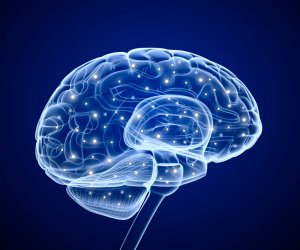Category file: Psychoanalyst in Madrid
Loss, to make room for the new
Stephen Grosz, a British psychoanalyst well-known to many psychologists in Madrid who have read his articles in El País, was recently interviewed by Tim Black on his book The Examined Life.
It is fairly unusual for psychoanalysts to write books or articles in such a way that the discipline may be understood by those unfamiliar with the field, and Grosz has done so remarkably well. The success of his book, and how well received it has been, attests to this fact.
In the interview, Grosz touches on his intellectual background and on the relevancy of Freudian thought today. He seeks to avoid pseudo-knowledgeable psychoanalytical jargon and aims to express what is essential to Freud’s discoveries –– notably a method of listening, without preconceived ideas, to what patients say in order to afford them a truthful view of their inner selves.
One of the central ideas of The Examined Life, and Grosz’ interview, is the importance of developmental arrest –– how not being able to lose something can freeze an individual in a state that doesn’t allow them to grow, develop deeper relationships, or gain new capacities. As Grosz puts it: “It’s only by letting go that you will make space for the next phase”.
Through the use of the evocative metaphor of haunting he describes how psychoanalytic treatment summons up, in a way, the ghosts in the patient’s mind. Ghosts that have never had a setting where they could be confronted, and that haunt the patient’s life with their uncomfortable presence.
Psychoanalysis offers them that setting, calls them into the awareness, and faces them squarely. Only then can they be put to rest.
Read Grosz' full interview.
Psychology and treatment of self-destructive behaviour
Self-destructive behaviour is, at first glance, amongst the most enigmatic and counterintuitive emotional disorders. How is it possible that someone would wish to harm themselves?
It seems to run directly against what appears to be everyone’s apparently obvious wish to seek out pleasure and happiness. There’s something disturbing about wishing to damage oneself, not protecting oneself, to seek out suffering. People who discover this trait in themselves are often deeply troubled by it.
And yet, if we take a step back for a minute, sooner or later we will observe that self-destructive behaviour is far from being unusual.
Indeed, it does sometimes present itself in very clear and recognisable forms, where the wish to destroy oneself is manifest and conscious (or almost): self-mutilation, certain drug-abuses, or exposing oneself willingly to another person’s violence, are examples of this.
However, these manifestations, so blatantly recognisable, are not by any means the most common forms of self-destructive behaviour. Far more common are all the subtle and compulsive forms of self-sabotage, of which the individual has no awareness whatsoever, and that effectively attack her or his wellbeing.
To be continually self-derogatory, seeking humiliation without realising it, approaching everything from a negative standpoint, going through mysterious and repetitive failures, insidiously (and firmly) hanging onto pernicious situations, or constantly finding oneself in the position of a victim are among the many ways that can be used to harm oneself.
We should also note that, from a larger point of view, some ideologies (be they religious, political, or other) derive a feeling of validation ––often of moral superiority–– on the experience of suffering. They thus attract individual who seek intellectual justification for their unconscious self-destructive needs.
If we investigate these situations in depth, we will first discover the relatively transparent incapability of allowing oneself to be simply happy. But we will also find, and much less obviously so, the secret pleasure that is obtained from suffering –– secret because it is unacceptable to our consciousness.
How does this come to be?
What is psychoanalysis?
The Toronto Psychoanalytic Society (TPS) has recently published some informative videos on psychoanalysis, who it is most suited for, and what distinguishes it from other kinds of psychotherapy.
In the interview here above, Susan K. Moore, a member of TPS, interviews professor Don Carveth, Training Analyst and ex-Institute Director at TPS, on the subject of what psychoanalysis is.
The conversation touches on what kind of psychotherapy psychoanalysis is, what type of person may seek out treatment, the difference between psychoanalysis and cognitive-behavioral therapy, why the unconscious is important, how dreams are a means to access the unconscious, and the way defenses work, amongst several other topics.
The interview continues on some of the many developments of psychoanalysis since Freud’s death: for instance, how subsequent analysts explored the earliest stages of mental development (Klein and Winnicott); and others discovered, and experimentally studied, the effects of attachment and loss (Bowlby).
Professor Carveth, having been the TPS Institute Director and taught extensively, finishes the interview talking about the importance of teaching and learning about all psychoanalytic perspectives in order to be able to access the widest range of patients’ psychic realities.
This stance is shared by many IPA Institutes and is also the case at the Madrid Psychoanalytical Association, where psychologists and psychiatrists who train there will be exposed to the whole range of theoretical and clinical thought.
Assessing the value of neuroscience
A fair number of psychologists and psychoanalysts in Madrid are interested in, and have written about, the different levels of complexity that exist in the understanding of the physical, biological, psychological and social dimensions.
The book: “Viaje a la Complejidad III. El Psiquismo. Un Proceso Hipercomplejo” (2013) is a testimony of their efforts.
Different laws of inference and understanding apply at the distinct levels; the causal relationships that can be established between elements at one level ––say, the biological–– cannot be used to explained phenomena at another level ––the psychological, for instance––.
It would be as much of an error to reduce psychology to the biological processes that underlie it as it would be to reduce biology to the physical interactions of the molecules within living organisms. When certain levels of complexity are reached within systems entirely different rules and properties emerge, properties that were not predictable from the previous level of complexity.
This phenomenon is called emergence. A classic example is what happens when one combines two gasses, hydrogen and oxygen –– there is nothing in these gases that predicts that when you combine them, the result will be water, which functions entirely differently from its component elements.
The same goes for psychology, there is nothing in the component elements of brain cells that predicts that conscious or unconscious behaviour will manifest itself. The current excitement over neuroscience, however, sometimes loses sight of this, and seeks to explain all psychological manifestations through brain activity.
A recent article by David Ludden in Psychology Today goes into the matter.
Equally interesting is Gregg Henriques reply.
What’s the difference between mourning, depression, melancholia and mania?
Mourning, depression and melancholia are often confused with one another, and mania is, for the most part, quite unknown. The term bipolar disorder, meanwhile, has become prevalent in everyday language whereas its clinical frequency has not changed.
They are all linked to a feeling of loss and, apart from mourning ––which is an entirely normal process that isn’t pathological–– they all belong to what are called mood disorders, those that affect the individual’s affective state, either by lowering it or heightening it.
Since there have been many questions about the subject from people in Madrid, let’s review what the differences are briefly.
Mourning:
Mourning is characterised by a state of sadness and apathy, often accompanied by insomnia and fatigue, that follow a conscious emotional loss. A loss that can be that of a loved one, a place, an activity, or even certain intellectual ideals.
Someone who is in mourning is fully aware of what they have lost; the acknowledgment of the loss leads them to slowly give up all the satisfactions, wishes and hopes that were tied to what has been lost –– hence the feeling of an impoverished world, and profound sadness. An important source of vitality, motivation and interest in their life is gone.
Mourning is not linear: it can be very intense, then disappear, come back at an unexpected time, or be absent at a moment when one would expect it. Although mourning gradually fades with time, it is not unusual for it to last several years if the loss has been that of someone or something deeply meaningful to the person.
Someone in mourning does not need psychotherapy or medication, they need time to reorganise their inner emotional landscape, and to be surrounded by understanding people. If, however, there is no modification in the sadness and the apathy over time then we talk about pathological mourning, which is a form of depression.
Who can become a psychoanalyst?
In Spain, as in most of the Western world, current legislation requires that those who wish to study psychoanalysis must previously have undertaken studies in psychiatry or clinical psychology.
These preceding studies guarantee a solid enough grounding in psychopathology, differential diagnosis, brain functioning, psychopharmacology, research methods, treatment options and social psychology that are essential for clinical practice.
However, those studies are not enough to be a psychoanalyst. There are certain personality traits, of those who wish to undergo further training in order to become psychoanalysts, that must be present in order for that wish to become a reality. These traits are not necessarily fully consolidated at the beginning of an analyst’s training, but there has to be at least a core that can be developed.
Those who wish to train in psychoanalysis in Madrid, in the Asociación Psicoanalítica de Madrid, will go through interviews where these qualities will be assessed, as well as the depth of self-knowledge acquired through personal analysis.
What are they then?
Emotional and intellectual honesty:
Every psychoanalysis and psychoanalytic psychotherapy rests on the quest for finding the patient’s inner truth, whatever it may be. This comes with a requirement of honesty on the patient’s part, but also on the analyst’s. Due to the sensitive material that they will work with and the trust it requires, the analyst must be willing to recognize that he is not infallible and can make mistakes, and he must also be willing to face whatever may arise during the treatment –– analysis is not an ascetic intellectual exercise and strong emotions will most likely appear at some time.
Who benefits the most from psychoanalysis and psychoanalytic psychotherapy?
There are currently many schools of psychotherapy –– such as psychoanalysis, cognitive-behavioural therapy, systemic therapy, humanistic therapies, etc.–– that are based on divergent theoretical foundations, and offer different treatment modalities.
Although historically each one of these schools has claimed, or sometimes still claims in certain cases, that it is valid for all those who seek psychological help, empirical evidence and the combined years of experience of many practitioners show us that this is not a verified fact.
In addition to the specific expectations of the people looking for assistance, their individual personalities will lead them to be more receptive to one kind of help than to another. The most noteworthy differences between people when it comes to choosing a psychotherapeutic treatment will manifest through their tolerance to frustration, where they locate their problems, and their degree of autonomy.
When it comes to psychoanalysis and psychoanalytic psychotherapy, there are certain personality dispositions ––that do not necessarily express themselves in all situations, but are nevertheless central to the person’s psychological makeup–– without which it is difficult for someone to be able to benefit greatly from this type of treatment.
What are they?
Let’s begin with the fact that psychoanalysis and psychoanalytic psychotherapy rest on some fundamental principals, mainly that:
International psychoanalytical congress
Every two years the International Psychoanalytical Association has a congress in one of its three regions: Europe, North America and South America.
The theme of the last Congress, celebrated in July, 2015, in Boston, was Psychoanalysis in a Changing World.
Psychoanalysts from all over the globe attend these Congresses as the IPA represents over 12,000 members from more than 50 component societies.
One of these members wrote a compelling article about her experience at the Congress and the what she found there: a focus on empirical research and science, openness to technology, a gender-balanced attendance, a vibrant and friendly atmosphere, and a recognition for the need to evolve with the world we live in.
Many psychoanalysts in Madrid would agree with her thoughts.
Read the article.
Reviewing contemporary neuropsychoanalysis
In a recent article in the Los Angeles Times, Joshua Kendall reviews Casey Shwartz’s book: In the Mind Fields: Exploring the New Science of Neuropsychoanalysis.
In The Mind Fields deals head-on with contemporary debates between neuroscience and psychoanalysis that sometimes tend to polarize to extreme positions.
Sometimes psychoanalysis seems to ignore the functioning of the brain to such an extent that it risks becoming brainless, and neuroscience tends to forget so entirely the subjective experience of the individual so as to become mindless.
Shwartz profiles Mark Solms, the founder of neuropychoanalysis, and describes how he resolves this false polarization, namely by stressing the fact that anything that goes on in the mind goes on in the brain too, and vice-versa.
She also touches on the lively debate between Hobson and Solms over the role dreams play, and to what extent an excess of emphasis on data gathered by highly sophisticated technology might forget the actual experience of the individual.
Read the article.
A new international psychoanalytical journal
At the recent International Psychoanalytical Association (IPA) Congress in Boston, psychoanalysts from all over the world celebrated the launching of a new, truly international on-line psychoanalytic journal, Psychoanalysis.today.
Psychoanalysis.today is the result of a collaborative effort between the four regional federations and associations of the IPA: Fédération Européenne de Psychanalyse (FEP), Federación de Psicoanálisis en América Latina (FEPAL), American Psychoanalytic Association (APsA), and the North American Psychoanalytical Confederation (NAPsaC).
There are many distinguished psychoanalytical journals ––The Psychoanalytic Quarterly, La Revue Française de Psychanalyse, La Revista de la Associación Psicoanalítica de Madrid, to name only a few–– but they tend to reflect local psychoanalytical culture and are often too technical for non-specialists.
The goal of Psychoanalysis.today is to improve communication between the IPA regions and to provide a platform where people who are interested in psychoanalysis can be informed in non-technical terms about what is being currently debated in the field.
The journal is available in English, German, French, Spanish and Portuguese.
Go to Issue Zero of Psychoanalysis.today: “The First Time”









